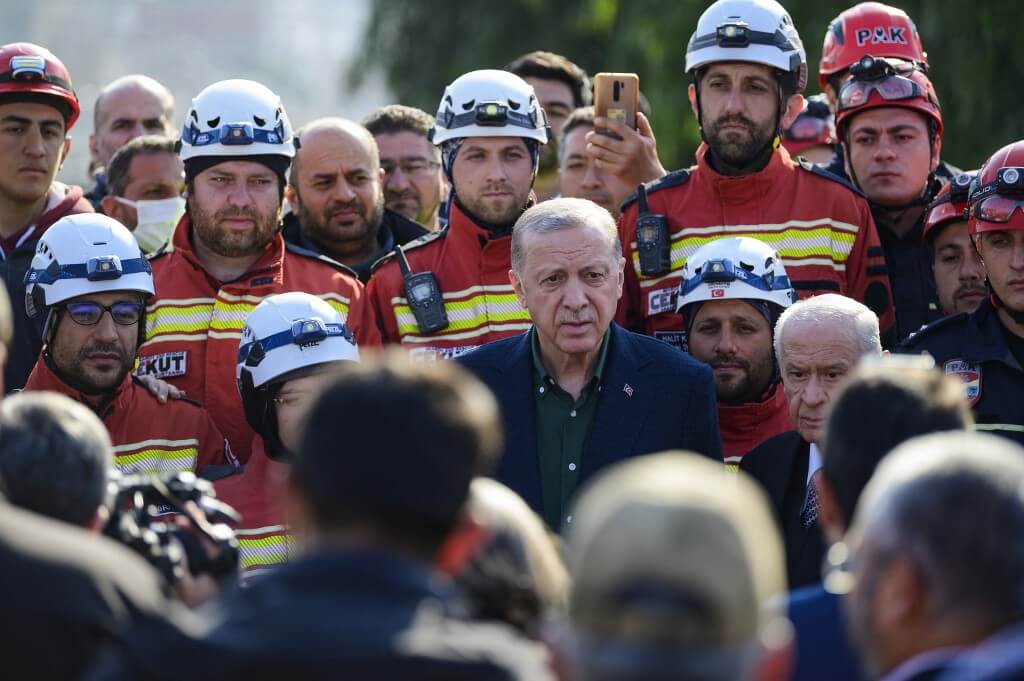One out of every four people in Turkey has changed their political party preference following two powerful earthquakes that hit the country in February, claiming the lives of more than 50,000 people, according to the results of a recent survey.
The survey, conducted by the İstanbul-based Spectrum House think tank on 1,446 people between March 10-15 across 10 provinces, was designed to reveal how the earthquakes influenced people’s political party preferences and what they think about the government’s response to the tragedy and its statements about the scale of the disaster.
A magnitude 7.8 earthquake that struck near the Turkish city of Gaziantep — home to around 2 million people and on the border with Syria — as people were sleeping on Feb. 6 was followed by dozens of aftershocks, including a magnitude 7.5 temblor that jolted the region in the middle of search and rescue efforts the same day.
According to the results of the survey, titled “Depremin Etkileri ve Siyasi Eğilimler Raporu” (Report on the Effects of the Earthquake and Political Tendencies), 23.4 percent of respondents said the earthquakes and the developments after them led to a change in their political party preference, a situation likely to affect the results of the presidential and parliamentary elections scheduled for May 14.
An overwhelming majority of 69.1 percent, however, said there has been no change in their political party preference, while 5.7 percent said they were undecided.
Those who indicated a change in their political party affiliation after the earthquakes were mostly young adults and people from a lower income bracket.
When asked whether they find the death toll and the number of people injured in the earthquakes announced by the government reliable, 66.7 percent of respondents said they did not, while only 24.9 percent said they thought the government data was reliable.
The Disaster and Emergency Management Authority (AFAD) announced last week that the death toll in Turkey from last month’s devastating earthquakes has risen to 50,096.
Many claim that the Turkish government is undercounting the number of earthquake victims to mask the true scale of the disaster as it is under fire for failing to prepare the country for earthquakes and other disasters as well as responding poorly to the disaster.
According to AFAD, the number of the injured stands at 107,204.
To another question asking which organization or agency should respond first in the aftermath of a disaster, 35.7 percent of participants said it should be AFAD, followed by the government at 29.2 percent and then by the military at 13.4 percent.
Following the disaster, Turkish President Recep Tayyip Erdoğan and his ruling Justice and Development Party (AKP) were accused of poor performance in coordinating search and rescue efforts, mainly for being late to mobilize enough manpower, especially the military, which resulted in civilians trying to pull their loved ones from under the rubble themselves.
Sixty-percent of respondents said they think it was wrong for the government not to mobilize the Turkish military and other government agencies immediately after the earthquakes to help in rescue efforts.
Many say the absence of the Turkish Armed Forces (TSK) led to a higher death toll since flattened buildings were left unattended for days due to the shortage of search and rescue teams and a lack of coordination.
Some small military units were later allowed to join in the efforts.
